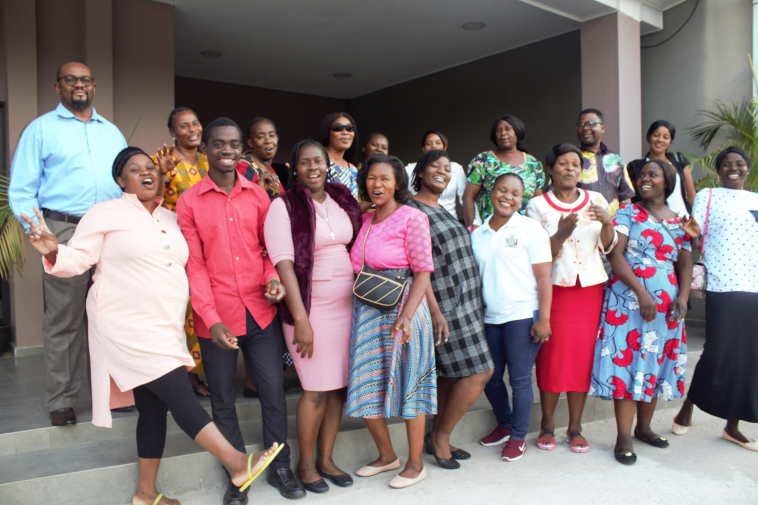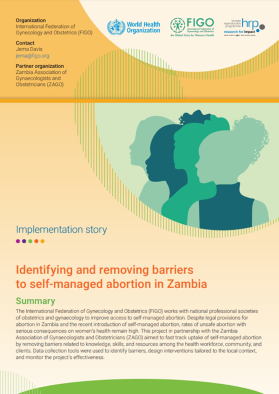Turning evidence-based guidelines into real-life impact

In 2022, the World Health Organization (WHO) updated its Abortion care guideline, widening its scope to include evidence-based recommendations in legal, regulatory, policy and service-delivery aspects of abortion care.
Since then, FIGO has played an instrumental role in disseminating these recommendations and supporting our member societies to put them into action. The WHO has recently published a case study to shine a light on the success of the FIGO Self-Management of Abortion Project, led in partnership with ZAGO. The story illustrates the importance of adapting global guidelines to local contexts and real-world situations, sharing useful lessons learned and valuable insights for others aiming to implement similar efforts.

In Zambia, women and girls seeking an abortion must have an initial consultation with a clinician to determine eligibility but can self-administer abortion medicines outside of a health facility up to 10 weeks of gestation if they prefer to do so. However, despite legal provisions for abortion and the recent introduction of self-managed abortion, rates of unsafe abortion with serious consequences on women’s health remain stubbornly high.
Our year-long project focused on identifying and removed barriers to access to self-managed abortion in the country to ultimately improve access to safe, timely, affordable and person-centred abortion care for everyone. The project leveraged ZAGO’s well-established relationships with key stakeholders in government and the community to accelerate progress, achieving significant advances in a short period of time.